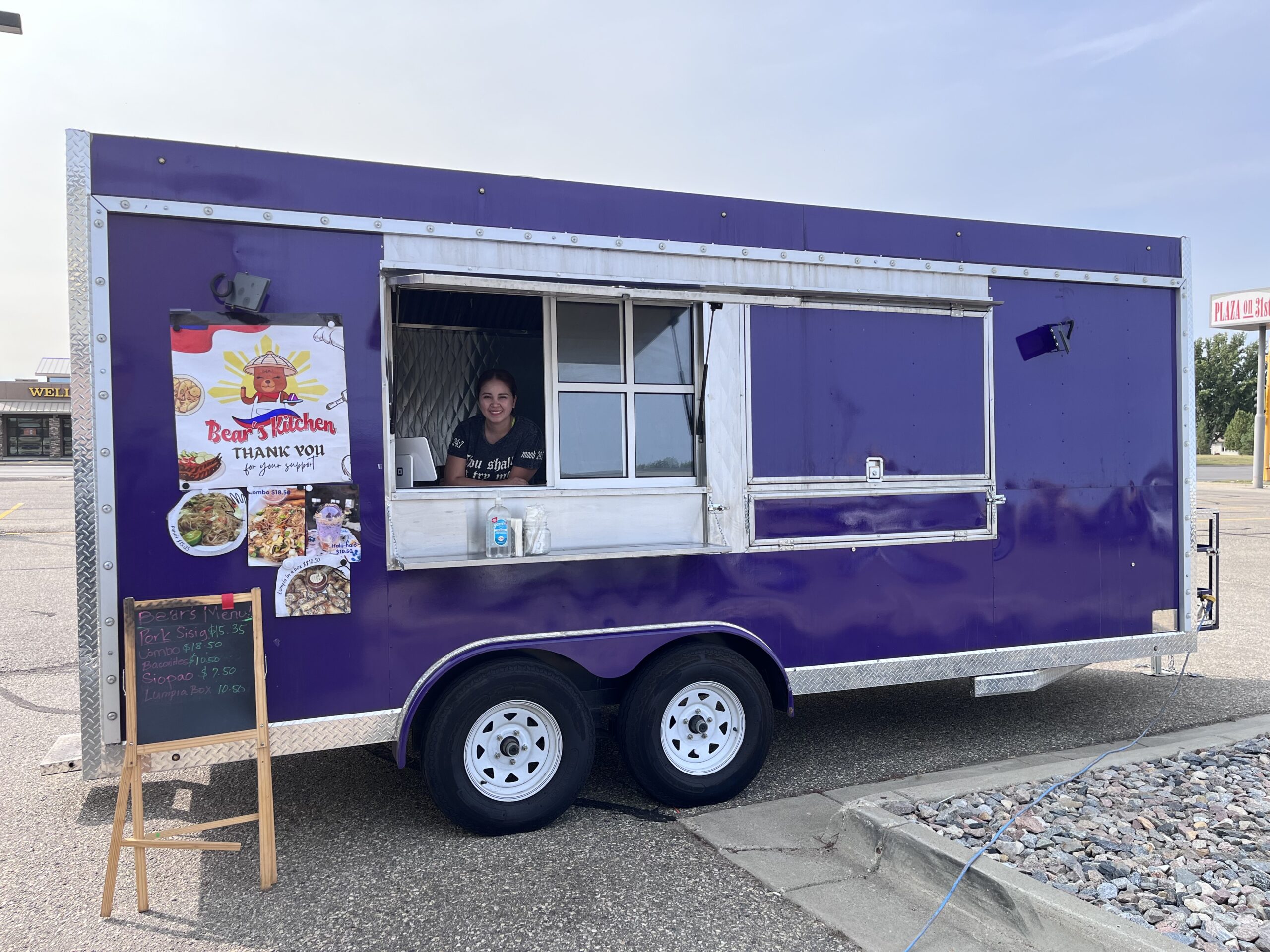Food is in every Filipino’s DNA. Through food, Filipinos connect and bond with families and friends. If you’ve ever been to a Filipino gathering, you’d find that food, music, and laughter are heavily ingrained in the culture.
With recent economic developments, more Filipinos are moving to North Dakota for work and family. They make up most of the Asian and Asian American community in the state. This increases the demand, as well as curiosity, for Filipino food statewide.
Meet the three Filipino food makers shaping the perception and reception of Filipino cuisine in North Dakota.
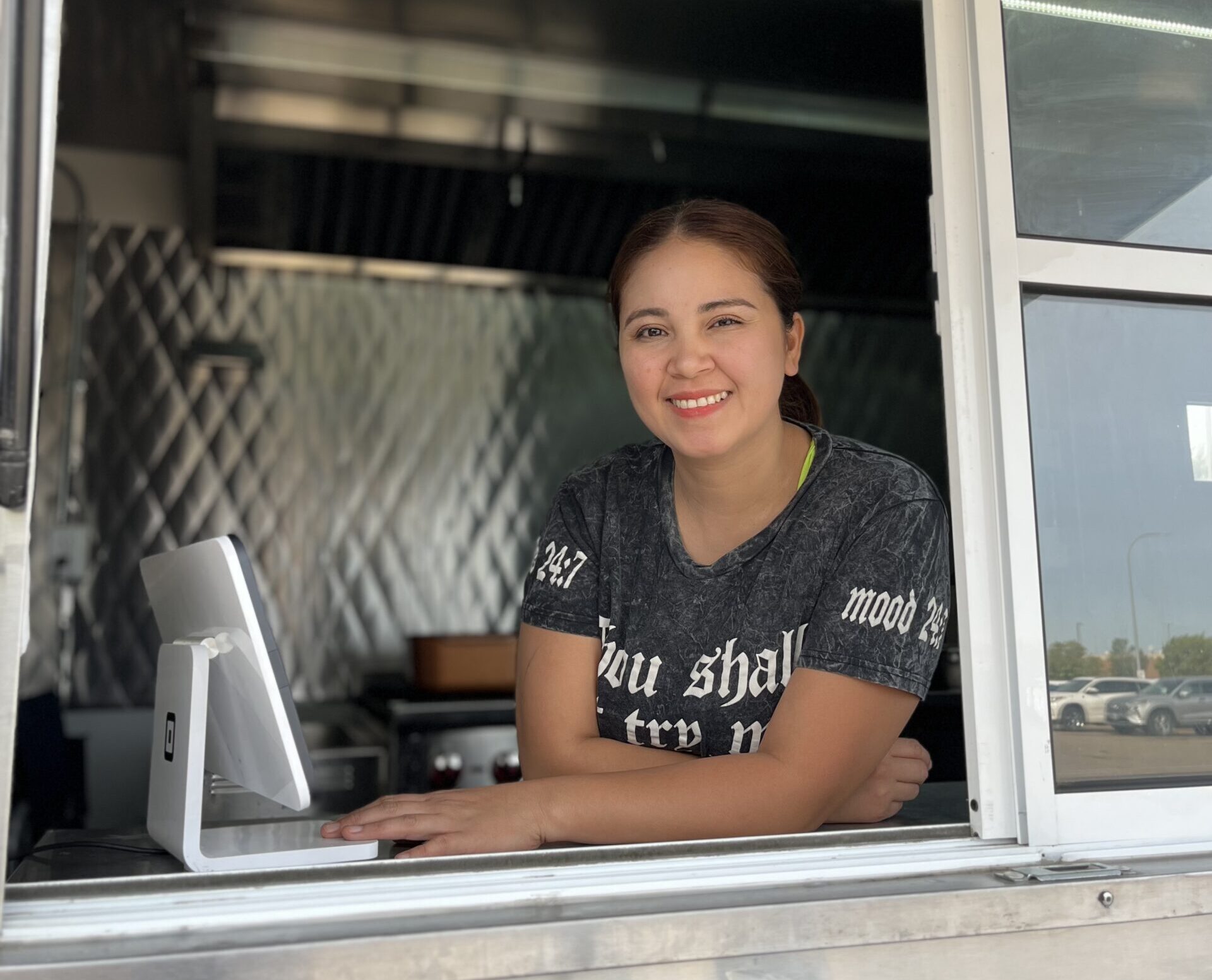
Foodways with Care
With the scarcity of Filipino food ingredients in Minot, Jenny Thomas cooks at Bear’s Kitchen with creative ingenuity.
“When I cook Filipino food, I want it to cater to different palates without sacrificing its authenticity,” says Thomas. “So, I grow my own vegetables and ingredients. I buy meat at the local butcher shop. I want to make sure the ingredients are of good quality.”
She curates the dishes on her menu considering organic ingredients and customer requests. “I have Filipino teachers and nurses (for customers) who immigrated here in North Dakota for work. When they come to me because they’re craving Filipino dishes, I want my food to offer comfort and a warm big hug,” she says.
Watching her mother cook inspired Jenny’s love for food and sense of adventure. She dreams of owning a restaurant one day but in the meantime is happy for how her food truck serves her kababayan.
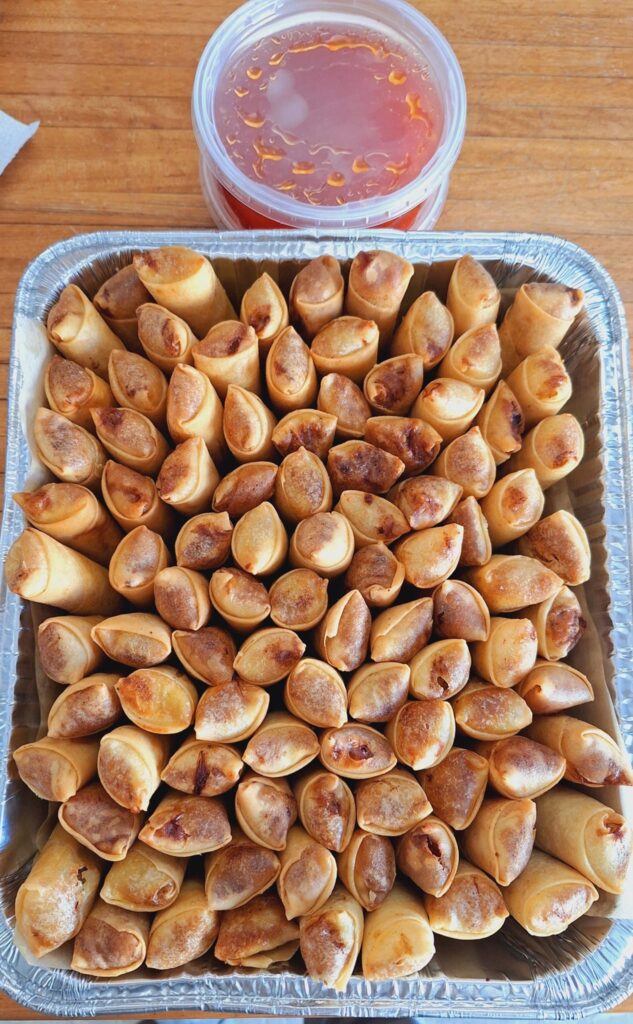
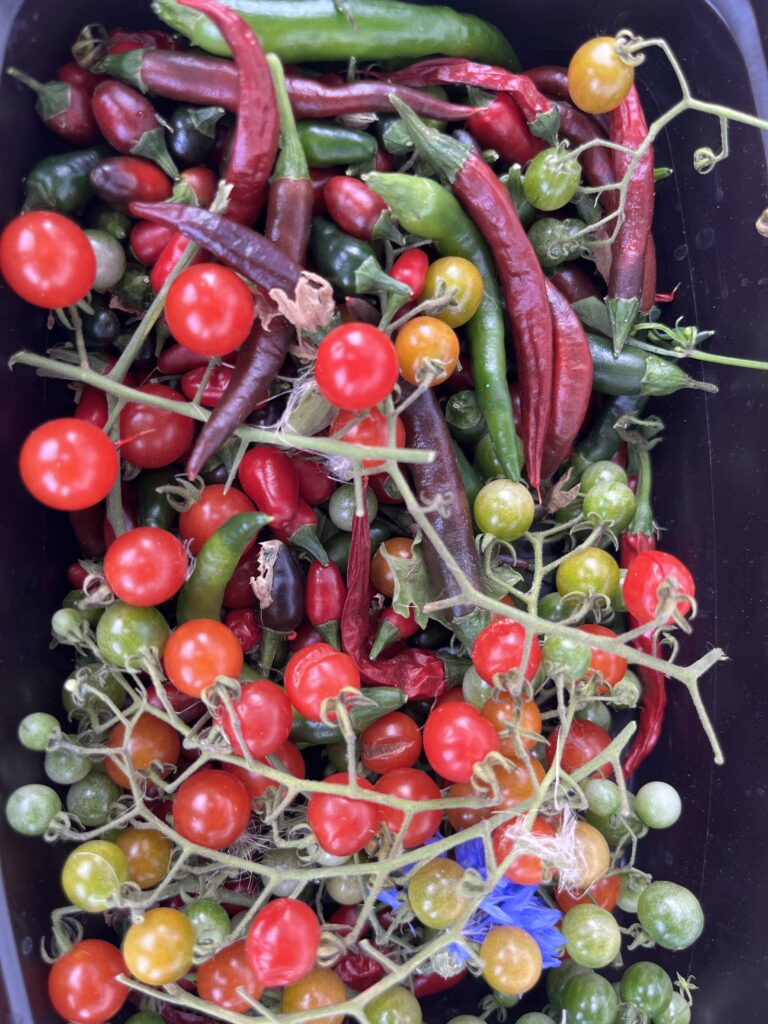
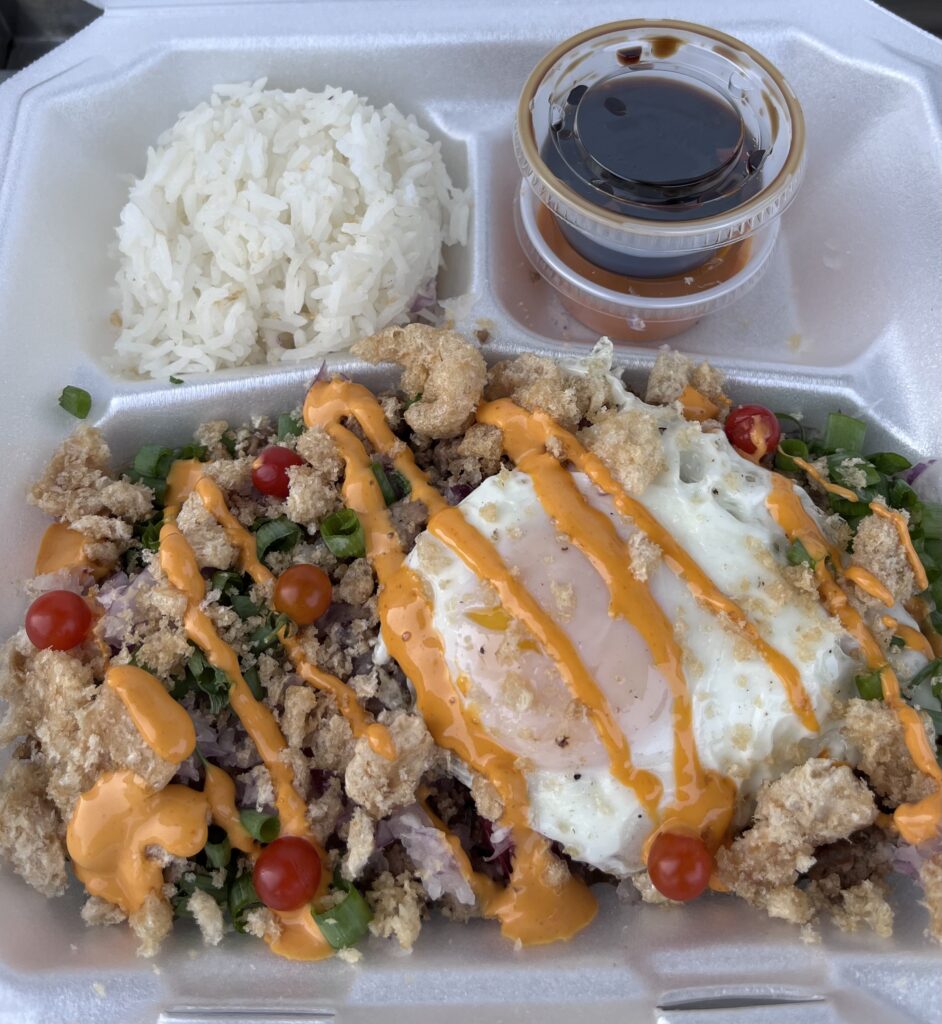
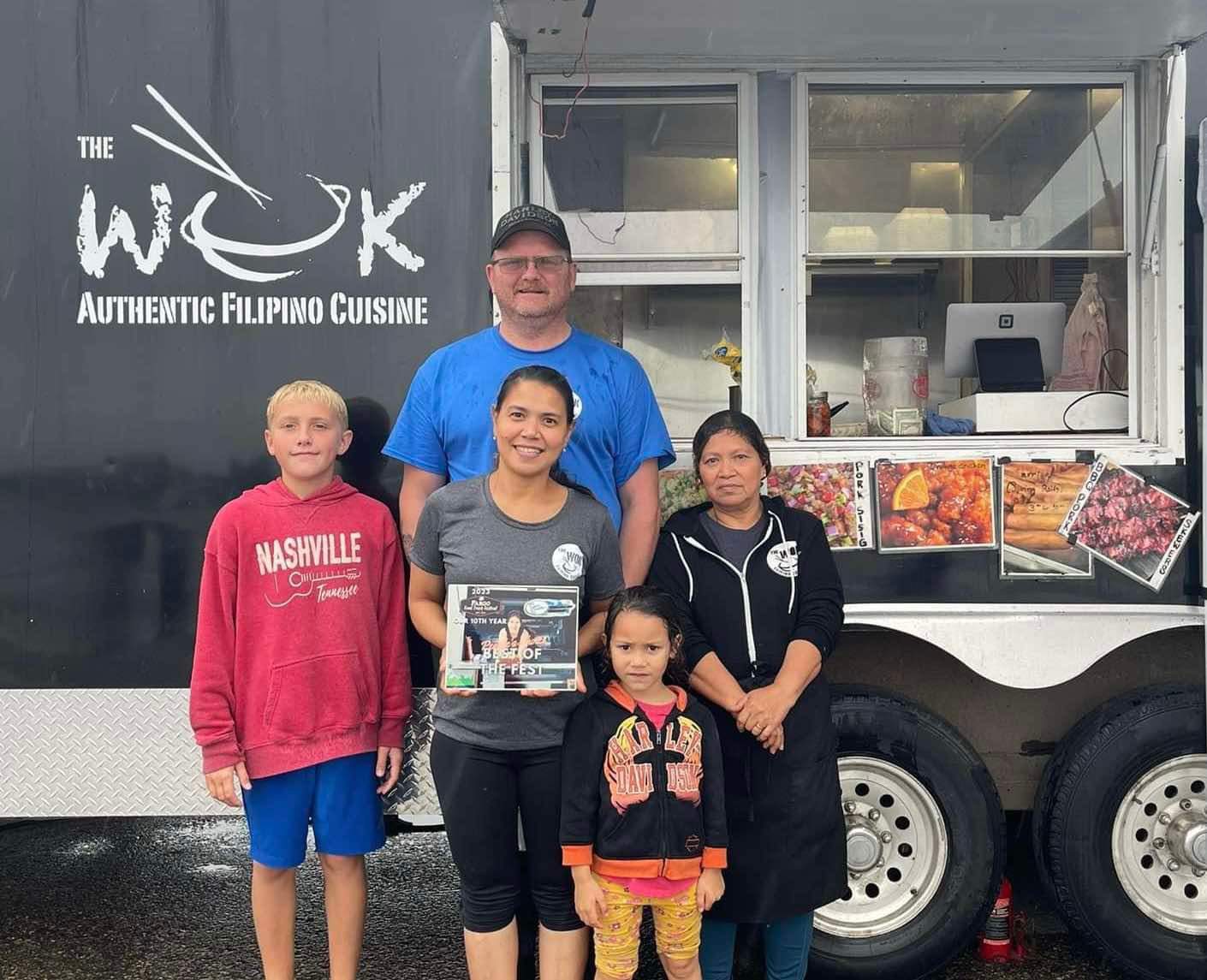
Passion for Cooking
Hailing from Pampanga—“the culinary capital of the Philippines”—Rose Stokke’s culinary story began thousands of miles away in Qatar. She worked as a service crew member at the prestigious La Cigale hotels. From taking orders to becoming a sous chef with no formal training, Stokke found success in the commercial kitchen.
Now, she shares her culture through food in Grand Forks while working at a local hospital. Stokke’s culinary practice is rooted in the regional Kapampangan cuisine.
“Every Filipino knows how to cook. Regional dishes make for rich culinary traditions. We love our food and we try to look for them wherever in the world we are,” she says.
In 2019, she opened her award-winning food truck, The Wok, in Grand Forks. The name was inspired by talyase, a wok she uses when cooking Filipino food. She blends tradition with innovation to accommodate Western palate and reinvents the dishes that shaped her childhood.
“I pay homage to my cultural roots through the food I cook,” she says.
PAMELA YENA CRABTREE“For me, Filipino food represents our people because it is a central part of Filipino celebrations, gatherings, and daily life. Meals are often shared with family and friends, even with strangers, cultivating a sense of community and warm-heartedness.”
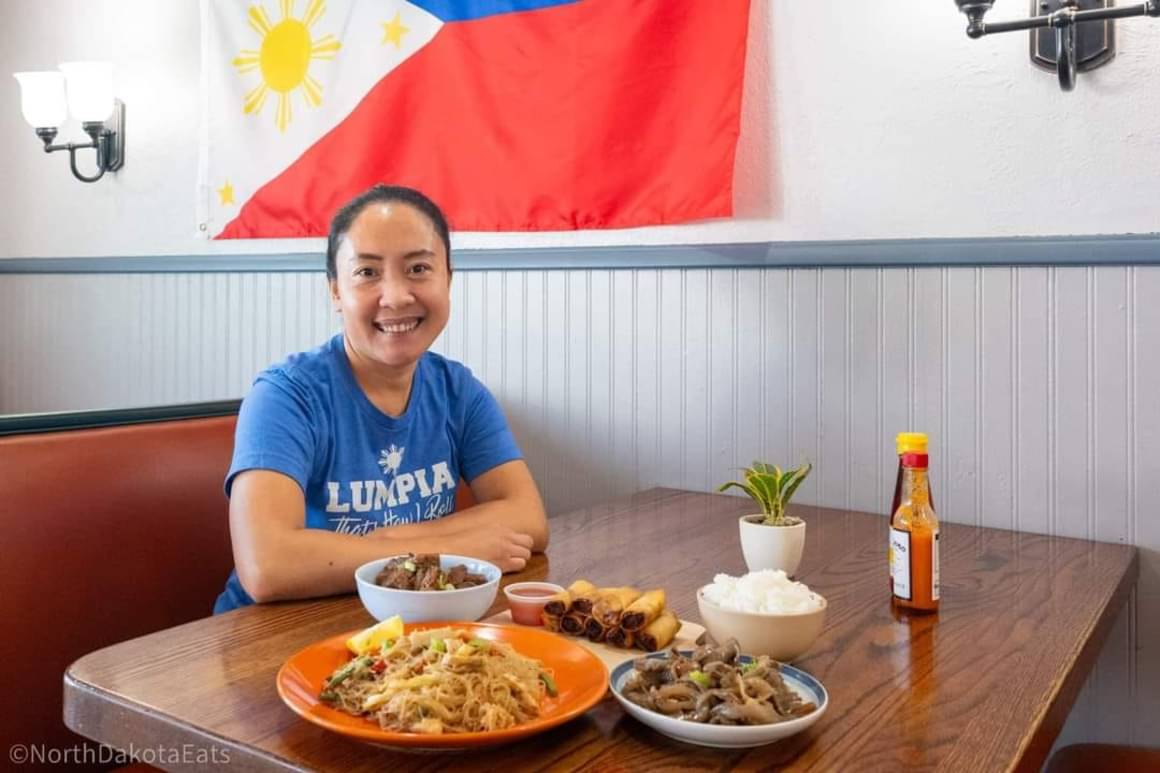
Preserving Food Traditions
Pamela Yena Crabtree serves authentic regional Filipino dishes to her patrons in the Bismarck-Mandan area. Born and raised in Bohol, Philippines, she’s motivated by her desire to share food that brings people together.
What led her to pursue cooking? Her grandmother’s delicious home-cooked meals. She initially started serving bar food at her restaurant Blackstone Grill in 2021. Sensing that she could offer more, she began making lumpia (Filipino spring rolls) and pancit (stir fried noodles).
“Filipino food is underrated yet very diverse and vibrant —reflecting Philippines’ rich history and culture. Our flavor profile balances sweet, sour, and salty elements, blending indigenous ingredients with influences from Chinese, Spanish, Malay, American and other cuisines,” says Crabtree.
People enjoyed the food, so a year later she renamed the restaurant Blackstone Filipino Kitchen. She expanded her menu to include Filipino stew and soup dishes.
Since her restaurant’s closure in February 2024 (due to a change in building ownership), she has found success in a new venture—catering Filipino food—while looking for a new location.
